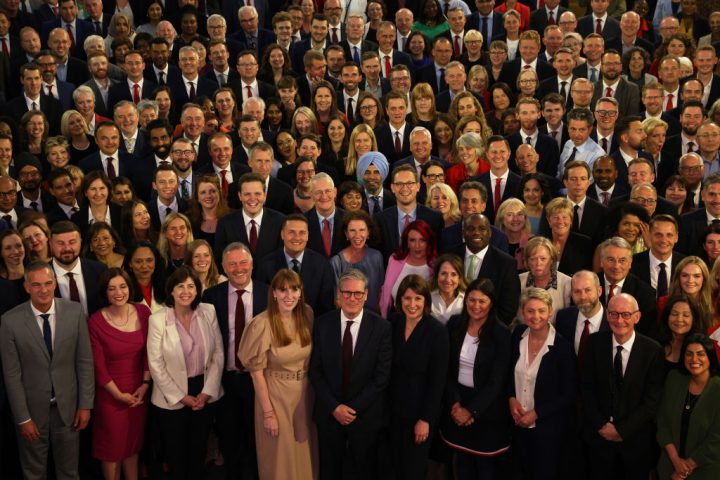One of Keir Starmer’s very nice problems to have is that his majority is so big and many of his new MPs so experienced that he needs to work out how to keep them occupied. The Prime Minister gave a partial answer to that last night, appointing a number of figures who have only just entered parliament to the government.
This would be remarkable were it not for the fact that those new MPs really have got a lot of experience in government from previous jobs. Kirsty McNeill was made a parliamentary under-secretary of state in the Scotland Office – the most junior ministerial job. She worked for Gordon Brown in Downing Street, and the former prime minister will have made a strong argument for her to join the government this week. Her experience at executive level in government means she is better equipped than most MPs who’ve been in the role for a good few years.
A number of the ministers appointed over the past few days were also ‘retreads’
Similarly, Georgia Gould is a bright shiny new MP, but an old hand in the world of government: local government, that is. As leader of Camden Council, she has been making bigger decisions than most backbenchers ever get to take. Three other newly-elected MPs – Sarah Sackman, Miatta Fahnbulleh and Alistair Carns – also make the ministerial ladder, but have all had significant experience.
A number of the ministers appointed over the past few days were also ‘retreads’ – MPs who’d previously lost a seat but had returned to parliament at this election. They include Emma Reynolds, who was a frontbencher under Ed Miliband. She lost in 2019, came back last week, and is now in the Work and Pensions department.
And then there’s the return of Jess Phillips, who resigned from the frontbench over Gaza and who nearly lost her seat to an independent Gaza campaigner. She was never expected to stay away from government for very long if Labour did win the election, and is back in the Home Office, her home turf.
Starmer can’t, though, appoint all his impressive new MPs to the front bench. In a large governing party, MPs tend to fall into factions so they have a greater feeling of connection. He’ll need to ensure that those groups are kept occupied with activities that help him, rather than get in the way of governing.







Comments